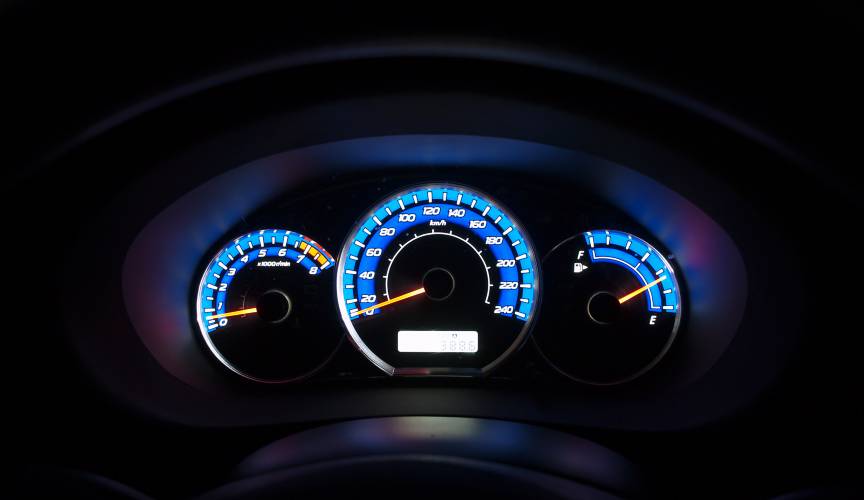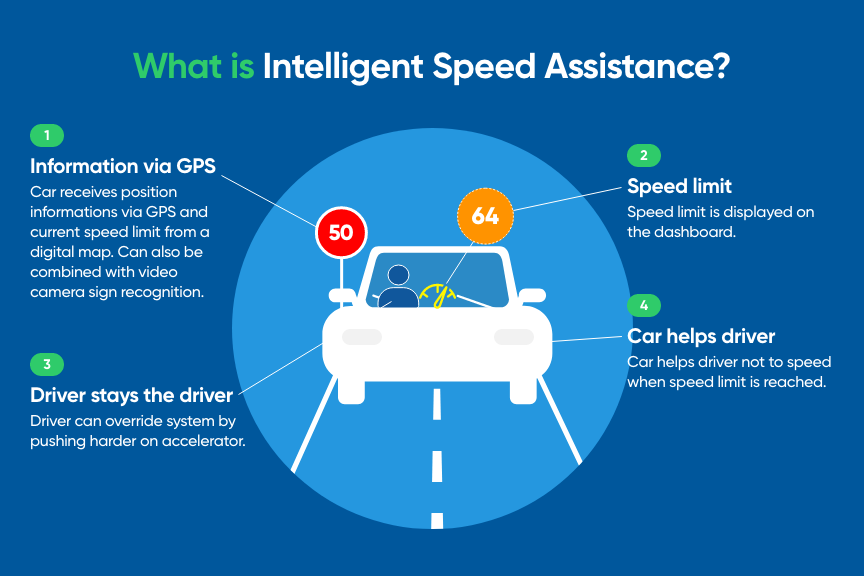https://www.jthughes.co.uk/Blog/View/Shropshire-Ready-For-Speed-Limiters/12476
Shropshire Ready For Speed Limiters?

Disclaimer: JT Hughes encourages opinion in the comments section below or on their Facebook page, but please be respectful. Offensive language is not acceptable and will be deleted. JT Hughes makes no representations as to the accuracy or completeness of any information on this article or found by following any link within the article.
Have you heard about speed limiters?
They're a new technology that's being used to help drivers stay within the speed limit. But what are they, and how do they work?
In this post, we'll answer all your questions about speed limiters. We'll also talk about the pros and cons of this technology, and let you know if we think it's a good idea or not. Stay tuned!
Speed limiters, as the name suggests, are smart technology added to a vehicle that ensures the car never goes above a certain speed
Similar to the way cruise control works, speed limiters automatically monitor your speed, and are therefore a great way to reduce speeding, resulting in fewer tickets and crucially – fewer accidents.
Ads by JT Hughes
Scroll to continue with content
How does the speed limiter work?

The speed limiter works by utilising some of the same sensor technology used with cruise control.
This new technology will be able to detect the speed limit on the road along which you’re driving through a combination of road sign recognition and GPS navigation data.
When the speed limiter technology detects that the car is going over the speed limit, it will begin to follow a few steps until the car has slowed down.
- Firstly, the car will flash a visual reminder of the speed limit to encourage drivers to slow down on their own.
- If the driver does not slow down, the car will sound an alarm to further alert the driver that the speed limit is being exceeded and use vibrations on the accelerator to send a message to the driver
- If the car is still driving over the speed limit, the car will sound a more urgent audio or visual alarm
It is important to note that speed limiters do not affect the braking system of a car and can be overridden by a driver pressing firmly down on their accelerator. However, this will reset every time a car is started.
What's the difference between cruise control and speed limiters?
There are some similarities between speed limiters and cruise control as they let you set a maximum speed. But unlike cruise control, you still need to use the accelerator pedal to maintain your speed. Some cars let you manually set a speed limit.
Does a speed limiter use more fuel?
Depending on driving style and route, an OEM Speed Limiter can reduce fuel consumption by up to 37%. (independent E-Cruise test conducted by Fleet Van Magazine, England). Reduced speed from 130 km/h to 110 km/h, for example, resulting in a 20% reduction in fuel consumption. (approximately)
Will speed limiters be mandatory?
From 6th July 2022, speed limiters are a legal requirement for all new cars sold in Europe.
All car manufacturers must integrate speed-limiting technology called Intelligent Speed Assist (ISA).
Part of a group of advanced driver assistance systems (ADAS), the new rule also includes Autonomous Emergency Braking (AEB), Lane Keep Assist and reversing cameras.
Despite Brexit, this new legislation will also apply to the UK. Not only is it expensive for car manufacturers to create different models for different countries, but it’s also important that the UK continue to be at the forefront of improving road safety.
This new legislation also states that a data logger must be fitted, which will record data from your journeys and potentially send that information to your insurer.
If you deactivate your speed limiter and are involved in an accident, this could affect your insurance claims.
Will using a speed limiter affect my car insurance?
According to the European Transport Safety Council, the technology could reduce road collisions by 30% and deaths by 20%.
If those projections are correct, in addition to making the roads safer, there should be fewer car insurance claims.
Premiums could be reduced if there are fewer claims. After all, insurance companies base their premiums on risk. Furthermore, if the risk of a claim is reduced, the cost of insuring your car may be reduced.
Why are mandatory speed limiters being implemented in the UK?
Aside from the technology's potential for saving lives, speed limiters may result in lower car insurance premiums. As a result, fuel economy and CO2 emissions may improve.
Do speed limiters stop me from getting speeding fines?
Even if your car has a speed limiter, you are still responsible for the speed at which you drive. This means that if you are caught speeding, you could still be fined.
When it comes to detecting speed, technology has limitations: speed signs are frequently obscured or inaccurate, and GPS mapping can be out of date. Temporary restrictions and road construction can also throw the system off
If the system does not correctly detect the speed limit, this could result in a speeding ticket, and drivers will still be held accountable, whether they used the system or not.
Can you override mandatory speed limiters?
If the speed limiter is activated on your vehicle, then you won’t be able to override it whilst driving. You can, however, deactivate the speed limiter.
Some organisations have expressed that they believe this feature is ‘nannying’ car drivers, while international bodies believe it will help to reduce accidents and save lives.
For this reason, it’s likely that the instructions on how to deactivate your speed limiter will likely be tucked away in your manual or menu.
It's worth noting that it is thought that the choice to deactivate your speed limiter will likely be removed in 2024.
While it might sound appealing to override your speed limiter or deactivate it, they've been proven to help reduce accidents on the road and can potentially save many lives.
In 2021, under free-flowing traffic conditions, 51% of car drivers exceeded the speed limit on 30mph roads. Including speed limiters in new vehicles will help to get closer to the goal of an international commitment called Vision Zero, which is a global strategy that aims to eliminate traffic fatalities and severe injuries.
Pros & Cons of Speed Limiters
Pros of Speed Limiters:
- Increased safety for all drivers, pedestrians, and cyclists on the road.
- Encourages more responsible driving habits
- Prevents dangerous speeding
- Helps to reduce emissions
- Reduces wear and tear on vehicles
- Can improve overall driver behavior
- Makes roads safer for everyone
- Reduce accidents rates and therefore saves lives
Cons of Speed Limiters:
- May lead to more congestion as people will drive closer together at the same speed
- Limits personal freedom
- May be pointless as individuals can override or disable them
- May be difficult to enforce
- Costs money to install on vehicles not produced with one
- Increases government control
What vehicles need speed limiters?
As of 6th July 2022, all new vehicles (including cars and vans) that drive on roads in the UK will need a speed limiter integrated when sold, and any models currently on sale have to have them integrated by 2024.
JT Hughes’s brand partners, Honda, Kia, Hyundai and Grenadier are already including speed limiters in new models that are being sold today, but they aren't yet activated.
Including a speed limiter will remain optional for other vehicles like motorcycles for now, but it’s not unlikely that this could change in the future.